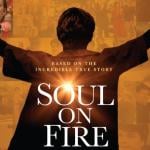I briefly already introduced the issues of what Richard Hays and Marianne Meye Thompson discussed in their papers at the Wheaton conference, but now it is time to circle back and give some more detailed reflection.
Hays on Story, History and Method
As I mentioned before, Richard (RBH) was responding in large part to Wright’s public criticism of Seeking the Identity of Jesus (which was a theological approach to studying Jesus that also sought to reveal the problems in modern historical-Jesus research).
RBH was interested in picking up on this question: What is the relationship between story and history in seeking out Jesus. Tom Wright seemed to think that RBH’s book was too Barthian and chose myth and narrative over (and against) dealing with the real history and facts.
In response, RBH countered with his own criticism of Wright’s Jesus and the Victory of God by questioning methodologically the historians oft-performed dissection of the well-crafted gospels in search for the historical substance that can be determined by pulling apart and rejoining. Put another way, RBH asked, what is the role of canon and tradition with respect to the most appropriate study of the Jesus of Nazareth? This is essentially a hermeneutical question. Does faith assist or obscure historical inquiry? Do we bracket out faith in our investigations, academic or otherwise?
Another important aspect of RBH’s critique is how Jesus should be studied, not just after the resurrection, but in light of the resurrection. Hays says something like (not an exact quote): The resurrection is the epistemological key to understanding the world and, thus, it is the key to understanding history. How does the resurrection make this particular historical endeavor unique or peculiar? RBH wonders, after Tom wrote his big Resurrection book, how would you (Tom) revise Jesus and the Victory of God?
Ultimately, Hays is concerned that in the process of historical slicing, the literary voices of the individual gospels get “drowned out.” Is this acceptable?
I felt that RBH had very good criticisms and his appraisal of JVG was fair and accurate. I am not feeling a sense of resolution on the question of history and story. I am still curious as the how “historical” the Gospel actually are and to what degree that “matters.”
Marianne Meye Thompson on John’s Gospel
The heart of MMT’s criticism was that Jesus and the Victory of God (JVG) left out John’s Gospel which is a seriously underappreciated resource for the study of Jesus. Also, she reports, Tom’s conclusions about the identity of Jesus in JVG are found throughout John, so there is no real disadvantage to permitting this as evidence. Following RBH, MMT points out that the resurrection plays a huge role in John, so excluding it from JVG underplays the significance of resurrection. MMT notes (paraphrase): In John, resurrection is part of Jesus’ life. There is no historical Jesus without resurrection!
Wright’s Responses
Tom offered an important insight into scholarly writing by acknowledging that he would have liked to include John in JVG, but needed to play by the rules of the guild of Historical-Jesus scholars to work within that field and be heard. Apparently, while Tom was writing JVG, John Dominic Crossan asked him bluntly, Are you going to include John? Then I will know you are not doing serious historical-Jesus research. Tom saw his role in writing JVG, then, as (in part?) an apologetic one – reaching masses of Barnes & Noble religious readers and he wanted his fair treatment of the issues to be read and heard alongside the Crossans and Macks. He saw the exclusion of John, then, as (I quote) “a self-denying ordinance.”
As for faith and tradition in historical study, Tom explained the context of the his writing of JVG and how he was often either locked in the attic where theological thoughts flowed without good historical grounding, or trapped in the basement where the canon was up for grabs and smashed to bits in search for the “true” bits. He is happy to work with the canon and he accepts the contribution of tradition, but he does not want tradition to set the agenda. He observed, for example, that the political dimensions of Jesus’ teaching and context was quickly lost in the church and has only recently brought back to those elements.
Personally I (Nijay) am divided between RBH and Tom on this one. I really enjoyed Seeking the Identity of Jesus, but I also feel it right to try and get back to the original meaning and context of the text through historical and social-context study. So, I felt confirmed in my anxiety by the tension between these two scholars – both NT luminaries and still at loggerheads on such a basic issue as exegesis and how to learn about Jesus. Humbling, stimulating, encouraging.
I agree with Mike Gorman who said on his blog that this conference demonstrated what it means to call a scholarly engagement a “dialogue” – a true meeting of minds that seeks out mutual agreement, interaction, and a hope to push forward bringing together the best ideas of two (or more) brains and hearts. Bravo!











